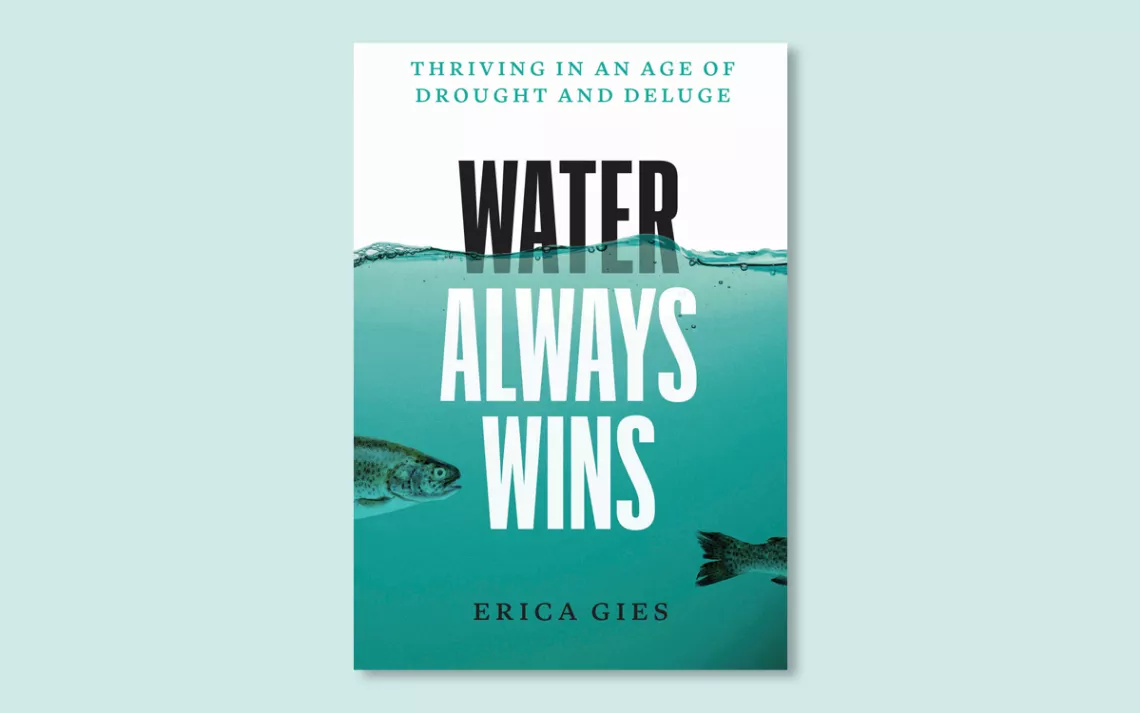The slow water movement and the art of engaging in conversation

Photo by sasha_pxy via Unsplash.
Water Always Wins: Thriving in an Age of Drought and Deluge by award-winning science journalist Erica Gies is a nonfiction reporting saga that takes the reader around the world to learn about the methods scientists are implementing for water advocacy and conservation. She recently visited UVic and offered a free, public talk about her book. Gies was also a guest speaker in multiple of my writing classes, so I felt inspired to learn from her and picked up her book.
The book is composed of 10 chapters, each one centered on a different part of the world. Gies takes us on her travels, from her hometown in California, to China, Peru, and India, among others, as we learn about the global efforts of water advocates. Gies’ overarching message is that our human compulsion to control water might have worked in the short term, but as humanity continues to grow old, no matter how many dams we build or how many rivers we redirect, water has consciousness and water always wins.
Water Always Wins is a well-written and incredibly engaging work. Although chemistry and physics jargon are present in the book, Gies is thorough with her explanations and is successful in grounding readers in the momentum of the work. We learn alongside her, as the book is written using first-person narration. By making herself a character in the narrative, she successfully creates a thread that brings everything together in a cohesive and engaging manner.
Throughout the book, Gies supports the “Slow Water Movement”, taking inspiration from the slow food movement, which was born in Italy back in 1989. In response to the increasing popularity of fast food, the movement invited participants to consume locally and prepare food with care and appreciation. The slow water movement proposed by Gies encourages us to work with local geology, ecology, and culture to make space for the natural slow phases of water, such as river flows, natural dams, and underground water flow.
The movement requires humans to respect water’s agency and relationships. Gies writes that water has a deep relationship not only with animals, but with the soil, the land, and all microorganisms. She suggests that water should be promoted by environmentally conscious initiatives and that water should be distributed among everyone rather than being centralized and enjoyed by very few. Embracing a gradual shift towards water-centric urban planning would necessitate a reevaluation of existing constructions and city development. It is noteworthy that, historically, no metropolis has been designed with a primary focus on water management. But Gies says that when water is respected, it gives back.
One of the weaknesses I perceived in this book is the overall repetition and, at some points, redundancy of the topics. For instance, I found the repetition throughout the book of the phrase “water always wins” a bit cheesy. Although it was at moments charming and reassuring, the book was unnecessarily lengthened by clichés like this.
Nevertheless, the author is poignant with her articulation of how capitalism has been the root of many significant environmental problems, in particular regarding water control and distribution. In many ways, this book is an exploration of the hurt and superiority stemming from the relationship between water and capital. Erica explores who has historically controlled water, and how that control always means taking from something else. Aquatic ownership and restoration are complex, the author beautifully captures this nuance.
Overall, Water Always Wins is an informative piece of literary journalism worthy of readership. It is an omen of hope for the future of our civilization, as we learn to allow integrity and autonomy to our water. Erica Gies emphasizes that solutions require the reflection of the unique circumstances of the land that water decides to run through. These solutions need local and traditional knowledge. Acquiring the requisite knowledge can be as difficult as traveling to many places, interviewing people, and being a science journalist for 15 years, or it can be as easy as enjoying a thrilling and informative book. Water Always Wins empowered me to learn more about the slow water movement, and the wonders we can do to save our planet.







